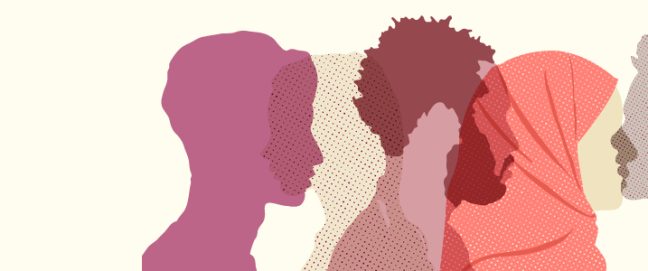Charlotte Kilpatrick, digital editor at Alliance, had the opportunity recently to catch up Tyrone McKinley Freeman, the newly appointed Glenn Family Chair in Philanthropy at the Indiana University Lily School of Philanthropy. His work has focused on the history of philanthropy and communities of colour. He’s most recently written a book focusing on the life of Madame CJ Walker, America’s first Black female millionaire.
Charlotte Kilpatrick: For those who have not heard of her, can you give us a quick summary of who is she and why you chose to write about her?
Tyrone McKinley Freeman : The title of my book is Madam C.J. Walker’s Gospel of Giving: Black Women’s Philanthropy During Jim Crow. Madam C.J. Walker was an early 20th-century African-American woman entrepreneur and philanthropist who was born right as slavery was ending in the United States in 1867 in the American South. She had a very difficult life initially, she entered into the cosmetics and beauty culture industry. She developed a set of products and began selling them door to door, and it took off in that it helped black women take care of their hair and developed their own beauty aesthetic in a world that had lifted up white women as the standard of beauty.
Her company became very well-known and before she passed away in 1919 she accumulated a massive amount of wealth. She lived from the end of slavery into World War 1, and in this context of racial discrimination, harassment and terrorism, her company became an international entity. There were reports that she had as many as 20,000 black women working for her as sales agents around the country.
But one of the things that she also was very much connected to was philanthropy. One of the interesting things about her is that, although she eventually became a millionaire, it wasn’t wealth that caused her to begin philanthropic giving. She began giving when she was very young as a poor, orphaned, widowed mother trying to make ends meet, again, in this Jim Crow South that was very difficult to live in.
CK: If she grew up in that sort of culture, was giving something that was sort of like part of her societal DNA? Would she have seen a lot of people in her community giving back in a way that maybe those, like the Carnegies or the Rockefellers, might not have seen on a weekly basis?
TF: She was a member of the African Methodist Episcopal (AME) Church, her family actually had Baptist origins, but she later converted as a young adult to the AME church. The church was a philanthropic institution itself, and it was one of the largest black denominations at the time and was building schools to address the needs of people newly freed from slavery.
Again, during this time, the 1800’s, and the early 1900’s they were very active in the fight against Jim Crow. They had a vibrant print and literacy culture producing magazines and publications where they were putting forward arguments by leading thinkers of the day on why slavery was wrong, or why Jim Crow was wrong and what America should do about it. And so as a part of that church, she not only was exposed to this international perspective, these efforts to build schools and other things, but she also was surrounded by the women, in many cases, who were running some of these schools or running the church committees and auxiliaries that were doing this work.
CK: So she had many role models growing up?
TF: Absolutely. Yes.
CK: I’ve heard this expression a lot, if you ever need, help ask the poor. So how does Madame C.J. Walker’s background growing up poor influence her philanthropy?
TF: I say in the book that every gift that she made was one that she once needed herself, so that she supported schools that were providing education to black people because she was denied a formal education as there was a provision in her community in Delta, Louisiana growing up. She had benefited from an organisation that provided daycare for her daughter. And then of course, as a Black woman, even though she becomes wealthy, she becomes famous. But under the Jim Crow system she’s still a Black woman, so her wealth really didn’t matter. She could still be lynched, violated, harassed and suffer all the indignities that came along with Jim Crow racism and sexism.
Even though she had a different kind of economic status than most African Americans, she still was in need of freedom just like every other African American. She dedicated her life and her resources to trying to bring that about. So she definitely has this perspective of being on the receiving end of the gifts and generosity of people and organisations, to help her as she was struggling. In turn, she steps into that same tradition and tries to give some of that back.
CK: During Jim Crow and during the Civil Rights Movement, Black churches, in particular, were targets of white terrorism. Is part of the reason that they were targets not just because they were houses of worship, but because they were these networks of giving and sort of like lifelines for so many people?
TF: The church was really the only, at the time, the major institution that Black people fully controlled. It was a safe space in many ways where they could be themselves. And it also was a place that drove this movement for freedom. And so yes, it became a symbol of those kinds of things, a symbol of progress, a symbol of Black independence that was very problematic for the Jim Crow system.
CK: What sort of backlash did Madam C.J. Walker experience during her lifetime? I can imagine that, you said that even if she was a millionaire it didn’t mean that she wasn’t exempt from violence.
TF: She had experience with racism and one that really got to her was when she was denied admission into a movie theatre in Indianapolis. She used her resources to stick her attorney on the theatre to try to get some resolution. So again, she’s still suffered these indignities. She also had her own vehicles that she would drive around and part of that was, navigating the indignities of travel on segregated trains.
So she was dealing with the daily assaults of racism and sexism, and she also navigated hostile market conditions where banks were not favourable towards Black businesses.
CK: What do you think modern philanthropists can learn from her example? I like how you said early on that it wasn’t like she became rich and suddenly started giving. This was something she always did.
TF: There is this lingering Carnegian idea that one should spend one’s life accumulating wealth and then later start giving back. But Walker says no, we should give along the way. And if she can do it as a poor orphaned, widowed, young mother, what’s everybody else’s excuse?
It’s really not about the size of your bank account or your level of comfort in that regard, it’s what are the needs out there and how might you do something. And it might be small now, it might be more oriented around your time, volunteering, it might be sharing your knowledge or your skills. It might be opening doors or making connections for people so that they get access to opportunities or information that they may not have had before. And it certainly includes making gifts, financial gifts to organisations, to movements that are in need.
So she really challenges a lot of the traditional ways that we think about who counts as a philanthropist, what counts as philanthropy, and really does away with this idea that philanthropy is the exclusive domain of the white, wealthy elite. It actually is part of our common collective human heritage, something that all of us have contributed something to and can contribute to, regardless of race, creed, religion, country of origin, what have you.
Charlotte Kilpatrick is the digital editor at Alliance







Comments (0)